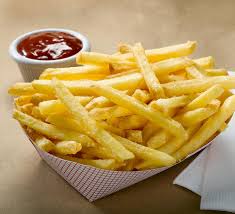Imagine this: being in a household where you, as a parent, do not know if you will have enough money to purchase groceries for your family. Then imagine going to your local grocery store, and what type of food do you end up buying? Most likely dishes that are less expensive and higher in calories.
It is not hard to understand why families that have food insecurity would have children who are obese. The United States Department of Agriculture defines Food Insecurity as meaning “consistent access to adequate food is limited by a lack of money and other resources at times during the year.”
How does this affect children? Food insecurity is a household situation, not an individual situation. While it affects everyone in a household, it may affect them differently. For many parents, their view of obesity changes – instead of becoming a health issue having some extra weight means that your child is well fed. You could also imagine as the child grows older that if they have a better life, they can deal with obesity. Your job, as a parent, is to keep that child fed.

Perishable food may be too expensive for grocery stores in poor neighborhoods.
The confounding factor of childhood obesity is parents become use to it – they see their child as “chunky” and the peers are likewise, then obesity becomes, among some – according to a study in the Journal of Pediatrics, ‘normal’. This is especially found among poor neighborhoods, where fresh food is expensive, if it is available – and if the grocery store is in a poor neighborhood they may not stock fresh items because a high percentage of those foods get wasted. What’s easily stocked are those foods that have long expiration dates, the more highly processed foods – that contain a higher quantity of calories. What’s also present among low-income neighborhoods are more places to have inexpensive and quick meals that are high in caloric value.
Doug Rauch, former president of Trader Joe’s, recently announced his Urban Food Initiative (UFI) that will seek to battle food insecurity and childhood obesity at the same time. According to JAMA Pediatrics, “To accomplish this, he proposed selling food gathered from the 11% of fresh produce and perishables that are discarded from other supermarkets, some of which is near or past the sell-by date. The first store, named the Daily Table, has been proposed to open in Dorchester, a low-income neighborhood in Boston, Massachusetts. The store will be housed in a building owned by and just down the street from Codman Square Health Center, a federally qualified community-based health center. The store is among several initiatives aimed at curbing obesity and will sell low-cost produce and healthy prepared foods, as well as offer cooking classes.”
The solution, according to Rauch, “For the 50 million Americans who are food insecure, their solution is not a full stomach. It’s a healthy meal.”
Combining food waste with food insecurity is one approach to helping kids get a healthy meal that is nutritious, and lower in calories. This is should not viewed as providing “expired” food or food that is undesirable, rather it allows fresh food to be sold at a discount that has a shorter shelf life. That combined with healthy cooking classes provides an outstanding opportunity for children to obtain fresh and delicious ingredients at a price their family can easily afford.
For those who mistake this as “rich man’s waste” consider the view of Mario Batali, celebrity chef and owner of Babbo, who found some food thrown in the garbage at his restaurant and showed how such food could be used to make a meal rather than waste it (described in his book, Heat). Food waste does not translate into inedible or undesirable food.
We’ve also found that all of the adolescent children that come to our clinic for obesity do not cook, and don’t know how to make healthy and fresh foods choices. The key is teaching them to become food aware, to become food intelligent (perhaps even ‘foodies’), which effectively vaccinates them from mass produced, high calorie items. One simple example is french fries- readily available in the poorest neighborhoods, and inexpensive. The equivalent of those fries in a baked potato is one third the calories.
The course that is most needed in areas of food insecurity is “home economics” – teaching the kids, who can then teach the parents how to cook, what to cook, and how to make a delicious meal last.

French fries are readily available in low income areas – 312 calories for these fries, but a single baked potato has 93 calories with less fat.
REFERENCES:
An Ethically Appropriate Strategy to Combat Obesity and Food Insecurity.JAMA Pediatr. Published online August 18, 2014. doi:10.1001/jamapediatrics.2014.1154The Urban Food Initiative. Deepak Palakshappa, MD1; Genevieve Daftary, MD, MPH2,3; Chris Feudtner, MD, PhD, MPH1,4
https://www.bostonglobe.com/business/2013/02/25/former-trader-joe-executive-wants-sell-inexpensive-prepared-meals-made-from-expired-food/Cyz1TwTAEFbQnWxn0teNsN/story.html
Generational Shift in Parental Perceptions of Overweight Among School-Aged Children
Andrew R. Hansen, DrPHa, Dustin T. Duncan, ScDb, Yelena N. Tarasenko, DrPHc,d, Fei Yan, MD, PhDe, and Jian Zhang, MD, DrPHc. Peadiatrics 8-19-2014
